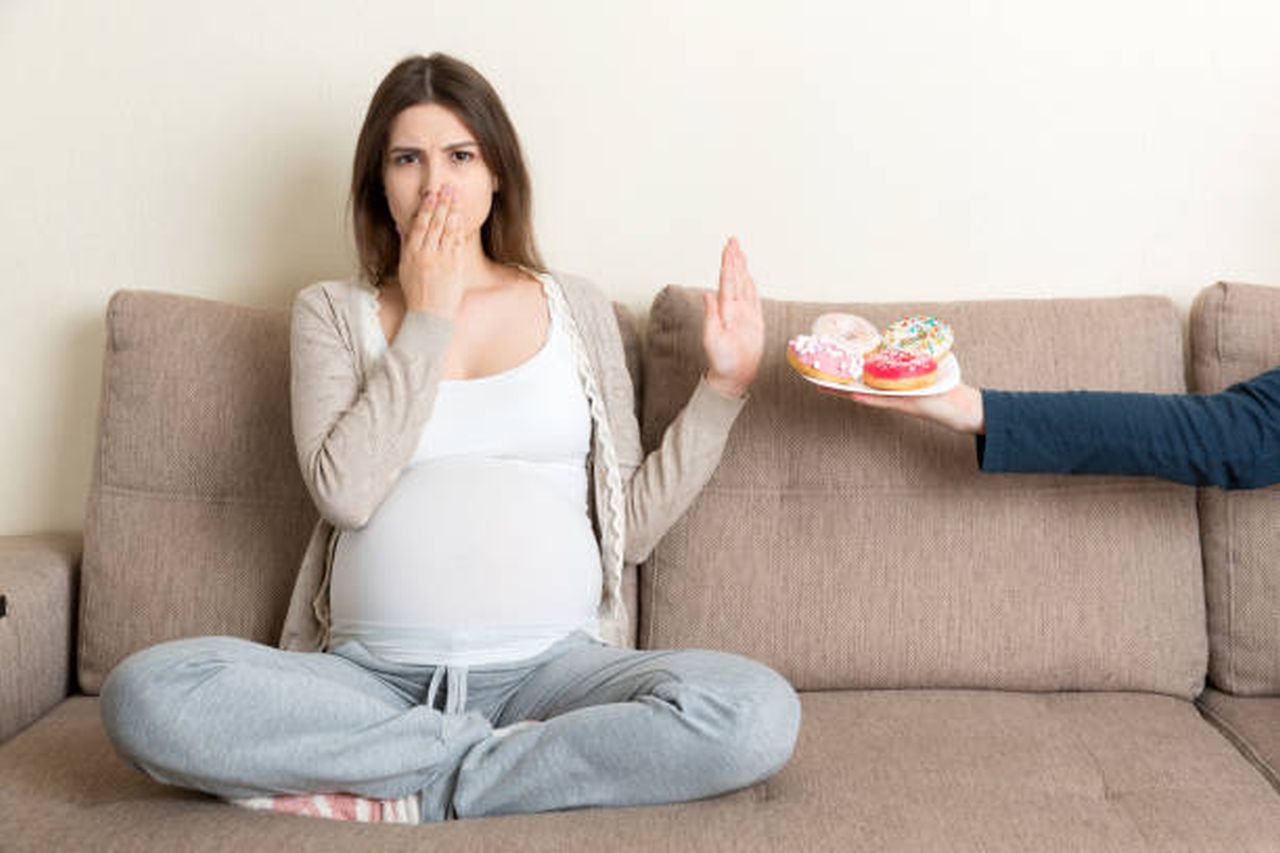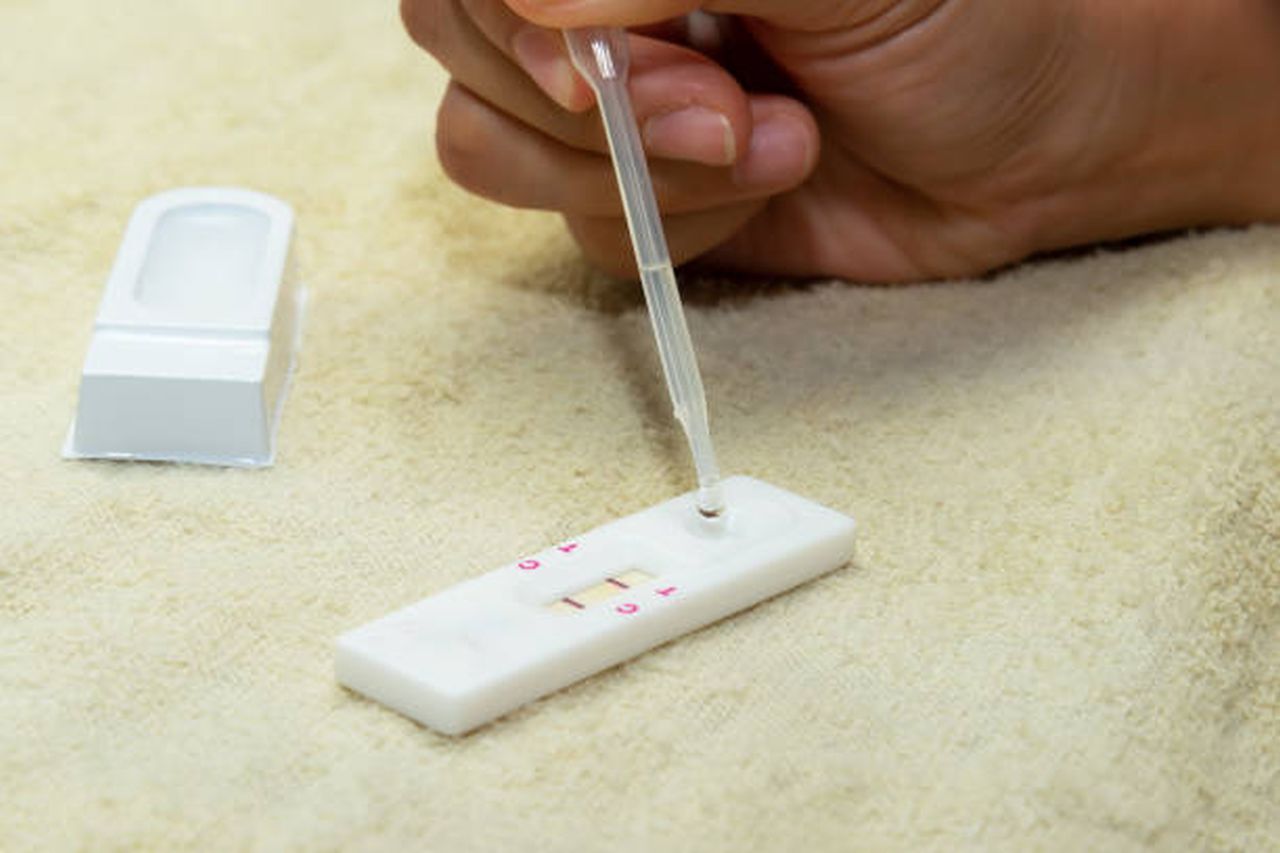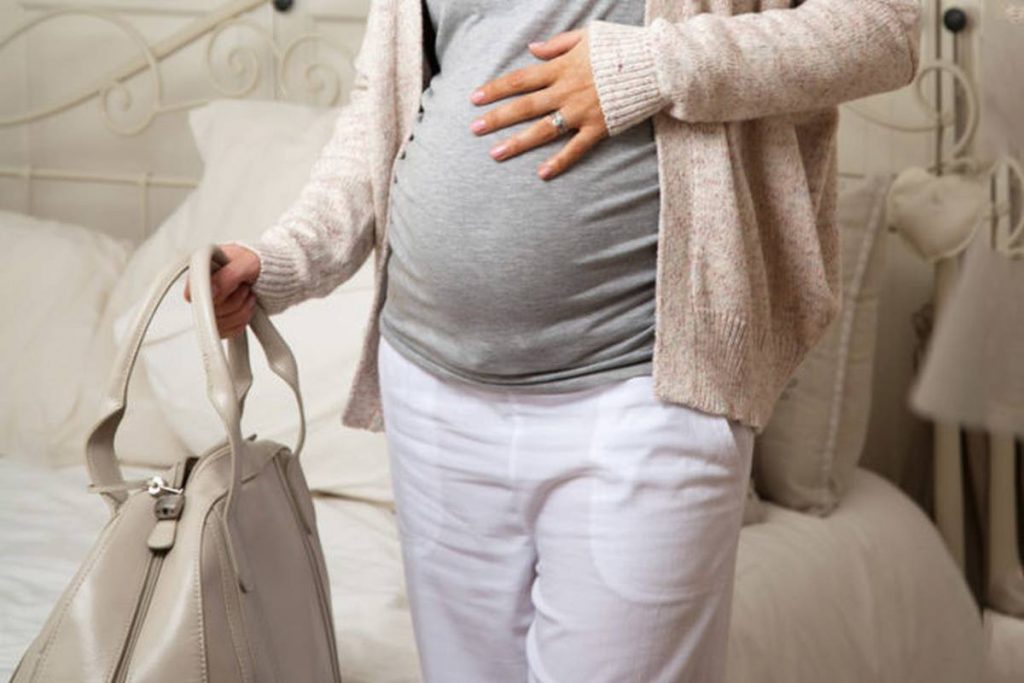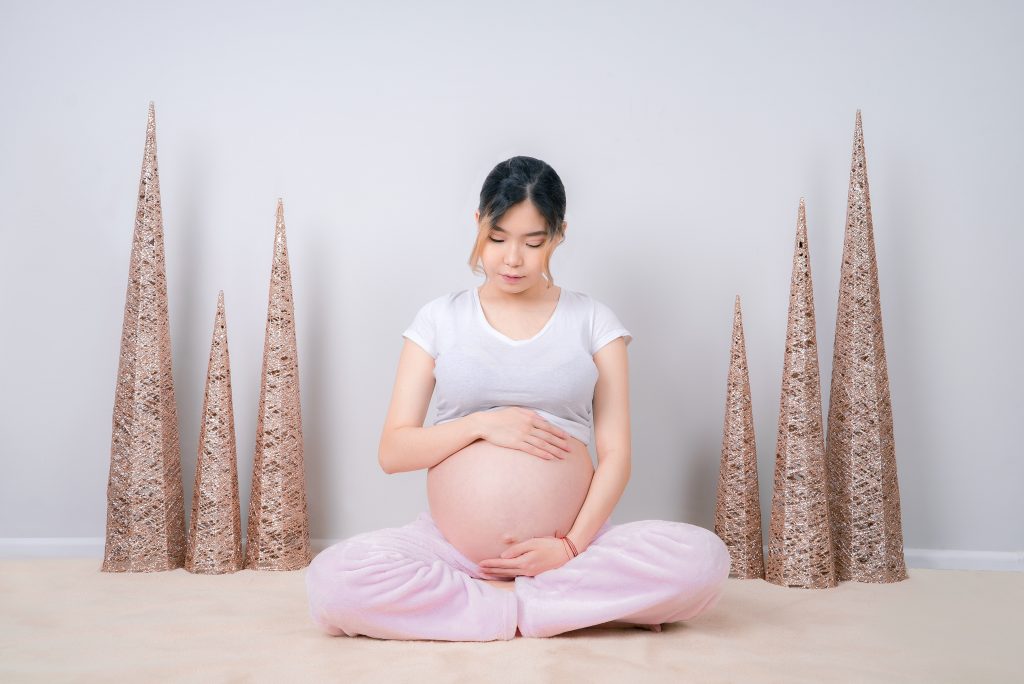I don't know if I'm pregnant, you could be thinking. You should know that you have support. Your body will go through a lot of changes when you're pregnant, and there are several early indicators you may check for to find out!
When they will find out if they are pregnant is a common question among first-time mothers. Your breasts may first feel tender and ache.
Morning sickness is another symptom, however it can strike at any time of day or night.
You can also experience cravings for things like pickles and ice cream.
Your doctor may have some suggestions for you if you've been trying to conceive for a time.
Pregnancy brings about major shifts in hormone levels. Several different symptoms can be brought on by them. Therefore, some pregnant women may suffer a wide range of symptoms, while others may experience none at all.
Missed periods, breast changes, fatigue, frequent urination, and morning sickness are all early pregnancy symptoms (morning sickness).
Take a home pregnancy test and consult your doctor if you suspect you are pregnant, but know that these symptoms can have other causes.
In the latter stages of pregnancy, your body may undergo a number of changes that may cause discomfort, such as backache, headache, leg cramps or varicose veins, itchiness or tingling, constipation, haemorrhoids or indigestion, vaginitis or vaginal discharge, mood swings, or sadness.
Don't put off seeing a doctor if you're worried about anything. If you develop symptoms such as bleeding or breaking of the waters during your period, persistent pain, a high temperature, severe headaches, or vision loss, you should see your doctor immediately.
If you're looking for the greatest baby nursery supplies to help you design the perfect space for your new arrival, look no further than My Baby Nursery.
FAQs About Pregnancy
Some women may begin noticing the first early signs of pregnancy a week or two after conception, while others will start to feel symptoms closer to four or five weeks after conception. Some women may not feel symptoms until their period is noticeably late, or even farther into pregnancy
Many people experience what seem to be pregnancy symptoms shortly before their period arrives. This happens because the hormone progesterone rises both during early pregnancy and in the premenstrual period. 1 In short, PMS symptoms and early pregnancy symptoms can sometimes be exactly the same.
The first sign of pregnancy is usually missing a period, about 2 weeks after you've conceived. This isn't always reliable and if your periods aren't regular you might not notice you've missed one. Some women have a bit of bleeding as the egg embeds. Many women also experience tender breasts.
The cheapest, easiest, most accessible way to confirm you're pregnant is with a home pregnancy test. This form of testing can identify a positive pregnancy result as early as two weeks after fertilization, making it one of the fastest ways to learn more about your situation.
In general, the best time is when you have your first morning pee. However, some pregnancy tests are sensitive enough to detect HCG no matter what time of day you take the test.
Overview
Other signs and symptoms may suggest pregnancy, but only a pregnancy test or ultrasound can confirm it.
Pregnancy symptoms start much earlier than just a missing period. Some of these symptoms include an inability to smell, nausea, and weariness.
Symptoms of pregnancy: do all women experience them at the same time?
There is no one type of lady. Pregnancy is a unique experience for each woman. Pregnancy symptoms can vary greatly from woman to woman and even from one pregnancy to the next.
Furthermore, you may not realise you are pregnant because the early signs of pregnancy are similar to those you may feel just before and during your menstrual period.
Following is a discussion of several of the most typical first signs of pregnancy.
You should be aware that pregnancy isn't the only possible explanation for these symptoms.
Just because you're experiencing some of these signs doesn't indicate you're pregnant. You need to take a pregnancy test to find out for sure.
When Do You First Notice Symptoms?
Though it may sound unusual, your first week of pregnancy is dependent on the date of your last menstrual period.
Even if you weren't yet pregnant, the week in which you last had your period is considered week 1 of pregnancy.
The first day of your last menstrual cycle is used to determine the due date. Therefore, the first few weeks of pregnancy, even if you don't experience any symptoms, are still counted towards your total of 40 weeks.
Some women may suffer early signs and symptoms within the first weeks of pregnancy in the first trimester, while others may develop symptoms later on in the pregnancy.
It is possible for a woman to miss the earliest indications of pregnancy because they are identical to those she may have experienced before to her menstrual cycle.
Clamping Down on Targets
The fertilised egg will connect to the uterine wall shortly after conception. This can cause one of the earliest indicators of pregnancy — spotting and, sometimes, cramps.
Blood loss during the implantation process. It occurs anywhere from six to 12 days after the egg is fertilised.
The cramps mirror menstruation cramps, so some women mistake them and the bleeding for the start of their period. The bleeding and cramping, though, are minor.
Besides bleeding, a lady may detect a white, milky discharge from their vagina.
This is associated with the vaginal wall thickening that begins shortly after fertilisation. Then, the discharge is brought on by the expansion of cells lining the vagina.
It's normal for this discharge to last for the duration of your pregnancy, and it won't hurt you or your baby.
However, if the discharge has an unpleasant odour or you have burning and itching, you should consult a doctor to determine whether you have a bacterial or yeast infection.
During weeks 1-4, cellular processes continue unabated.
When an egg is fertilised, it becomes a blastocyst, a fluid-filled cluster of cells that will eventually give rise to all of the baby's internal organs and tissues.
The endometrial lining is implanted by the blastocyst approximately 10–14 days (week 4) following fertilisation.
There may be some bleeding during the implantation process, which could be misinterpreted as a light period.
Symptoms of implantation haemorrhage include:
- It's up to the discretion of the show's producers whether each episode is pink, red, or brown.
- Bleeding: Bleeding is usually likened to your regular menstrual period. Blood that appears only after being wiped away is what we call spotting.
- Ache: Ache can range from mild to severe. One quarter of women in a survey of 4,539 said that cramping and pain accompanied their periods and light bleeding.
- In most cases, bleeding after an implantation procedure will stop on its own within three days.
- Avoid smoking, consuming alcohol, or using illicit drugs, which are related with excessive bleeding.
Mammary Gland Alterations
Symptoms of pregnancy include nausea, vomiting, and changes in breast size and shape. This is because after giving birth, a woman experiences fast changes in her hormone levels.
A week or two later, they may experience breast swelling, pain, or tingling as a result of the changes.
They could also be heavier, fuller, or more delicate to the touch. The areola (the skin around the breasts) may also become more deeply pigmented.
Breast alterations may also be brought on by other factors. However, if the alterations are the first signs of pregnancy, it's important to remember that adjusting to the increased hormone levels may take a while. Breast pain, however, is expected to lessen at this time.
Alterations to the breasts are possible between weeks 4 and 6. Hormonal shifts after that can cause your breasts to become painful and enlarged.
After a few weeks of taking the hormones, your body should be able to adjust and this should go away.
Alterations to the nipple and breasts may also occur at this time. Your breasts will keep expanding because of your hormones.
Some women experience a darkening and enlargement of the areola (the region surrounding the nipple).
Pregnancy might bring on breakouts even if you've never suffered from acne before.
Fatigue
Extreme fatigue is a common early pregnancy symptom.
One week after conception, a woman may begin to experience unusual exhaustion.
Why? This is generally associated with increased levels of the hormone progesterone, while other factors, such as improved glucose tolerance, reduced blood pressure, and increased blood output, may also play a role.
If you're experiencing pregnancy-related exhaustion, getting extra shut-eye is crucial. Protein and iron-rich diets are particularly useful in this regard.
Weakness during pregnancy can occur at any time. This is a common symptom in the first trimester. Elevated progesterone levels can make you feel drowsy.
High Birth Weight Causes Early Pregnancy Heart Rate Increase
You may notice an increase in heart rate and/or its intensity between weeks 8 and 10. Heart palpitations and irregular heartbeats are typical during pregnancy. Typically, hormonal fluctuations are at blame.
It is not until later in pregnancy that the foetus begins to cause an increase in blood flow.
Ideally, treatment would begin before pregnancy, but if a cardiac condition already exists, your doctor can help you monitor very low medicine levels.
Nausea (Morning Sickness) (Morning Sickness)
One of the most recognisable signs of pregnancy is morning sickness. However, it does not affect all expectant mothers.
However, it is believed that pregnant hormones play a role in the onset of morning sickness.
Morning is the most usual period for nausea during pregnancy, however it can strike at any moment.
In addition, some pregnant women experience an intense desire for, or intolerance of, particular foods. That, too, is linked to a shift in hormone levels.
Pregnancy nausea can be so powerful that a woman can become nauseated just thinking about a cuisine that used to be her favourite.
Nausea, food cravings, and aversions could persist throughout a pregnant woman's entire pregnancy.
Thankfully, many women report a reduction in symptoms during the 13th or 14th week of pregnancy.
In the meantime, make sure you and your growing baby are getting enough of the right nutrients by eating well. Consult your physician for guidance in this matter.
Your newborn deserves the best, and our specialised baby nursery product line can help you get there.
Inadequate Period Coverage
Most women will take a pregnancy test after missing their period, as this is the most noticeable early sign of pregnancy. However, pregnancy is not always to blame when a period is late or absent.
After an embryo has been successfully implanted, your body will start manufacturing human chorionic gonadotropin (hCG).
Pregnancy is maintained with the help of this hormone. On the other hand, it signals to the ovaries to cease releasing eggs of reproductive age on a monthly basis.
Four weeks after becoming pregnant, you probably won't get your next period. You should take a pregnancy test if you have any of these symptoms:
Eight days following a missing menstruation, hCG can usually be detected by most home tests. Additionally, hCG levels in your urine can be detected by a pregnancy test to confirm your pregnancy.
In addition, minor bleeding is normal during pregnancy for some women. Talk to your doctor about any bleeding concerns you may have throughout pregnancy.
When, for instance, does bleeding occur normally and when does it indicate a medical emergency?
It's not just pregnancy that might cause a woman to go without a period. Possible causes include excessive weight gain or loss.
Other potential causes include hormonal issues, exhaustion, or stress. Some women also report that they have missed their periods since stopping the use of birth control pills.
But if your period is late and you think you could be pregnant, you should take a test.
Inflammation and a Raise in Temperature in the First Trimester
Pregnancy may also be indicated by a higher than usual resting body temperature.
When you workout or go outside in hot weather, your core temperature may rise more quickly.
Remember to up your water intake and proceed with caution if you plan on working out while this is happening.

Pregnancy Symptoms That Come Later
The hormone balance of a woman naturally shifts throughout pregnancy. In addition, this may result in symptoms such as:
Depression And Other Mood Swings In The First Trimester
While pregnant, your levels of the hormones oestrogen and progesterone will rise. This boost may cause you to become more emotive or snappish than usual.
Mood swings, including sadness, anger, anxiety, and sometimes elation, are frequent throughout pregnancy.
Lack of Control Over Urination And Continence In The First Trimester Of Pregnancy
During pregnancy, your heart rate and blood pressure naturally rise. Because of this, your kidneys will process more fluid than usual, which will cause your bladder to become distended.
Furthermore, hormones have an important impact on bladder function. Consequently, you may find yourself making more frequent trips to the restroom or perhaps leaking unintentionally.
In early pregnancy, bloating can occur, which is similar to PMS symptoms.
Hormonal shifts have been linked to a sluggish digestive system. There's a chance you'll experience bloating, slow movement, and perhaps constipation as a result.
In addition, constipation might make you feel even more bloated.
Early-Pregnancy Nausea, Vomiting, and Morning Sickness
Morning sickness and nausea typically begin between weeks 4 and 6.
Morning sickness, despite the name, can strike at any time of day or night. No one knows for sure, but hormones may have a role in triggering nausea and morning sickness.
Many pregnant women suffer from mild to severe morning sickness throughout the first trimester.
Even if it gets worse towards the conclusion of the first trimester, it usually subsides when you reach the second.
Early Pregnancy Hypertension and Lightheadedness
Early in pregnancy is associated with a decrease in blood pressure, whether it was previously high or normal. Since this causes your blood vessels to widen, you may also experience dizziness.
Determining hypertension in pregnancy is trickier. However, hypertension within the first 20 weeks indicates a concern in virtually all situations.
It's possible to have it before pregnancy, or it could develop during the first several months.
At the first appointment, your doctor will take your blood pressure to establish a normal range for future readings.
Sensitivity to odours is a self-reported symptom of early pregnancy. There is scant empirical evidence that pregnancy increases olfactory sensitivity in the first trimester.
However, this may be obligatory, as sensitivity to odours is a known cause of nausea and vomiting. Having a sudden aversion to specific foods is another possible side effect.
One analysis covered the literature on the topic of aromas and pregnancy from 1922 to 2014.
Women's perceptions of the intensity of odours were observed to increase throughout the first trimester of pregnancy, according to the study.
Gaining Weight in the First Trimester
By the third month of pregnancy, most women have already put on some weight. During the first several months, you can put on a few extra pounds.
In the first few months of pregnancy, you can continue eating normally, but as the pregnancy grows, you'll need more calories.
Late in pregnancy, women tend to gain weight mostly in these areas:
- Breasts (approximately 1 to 3 pounds) (about 1 to 3 pounds)
- Uterus (approximately 2 pounds) (about 2 pounds)
- Placenta (1.25 lb.)
- Substance present in the amniotic sac (about 2 pounds)
- Fluid and blood volume expansion (about 5 to 7 pounds)
- Fat (6 to 8 pounds) (6 to 8 pounds)
Having Heartburn While Pregnant
The relaxation of the esophageal-gastric valve is mediated by hormones. The result is heartburn from the stomach acid leaking out.
- Eating several little meals rather than three large ones a day will help alleviate heartburn experienced during pregnancy.
- If you want your stomach to have more time to process your meal, try to keep your body in an upright position for at least an hour.
- If you need antacids, you should discuss the options with your doctor to determine which are safe for you and your unborn child.
Having It Both Ways: Pregnancy Glow and Acne in the First Trimester
People may start commenting that you "glow" with pregnancy. This is because elevated hormone levels work together with increased blood volume to force more blood through your arteries. That makes the body's oil glands go into overdrive.
Your skin will appear flushed and shiny due to the increased activity of your body's oil glands. However, you should also know that acne breakouts are a possibility.
How Can I Calm and Alleviate My Pregnancy Symptoms?
It is possible to alleviate some of the discomforts of pregnancy with the help of a number of home remedies and self-care practises.
Some antibiotics are also generally considered safe to take during pregnancy.
Before starting or increasing your intake of any medication, whether it be OTC, prescribed, or nutritional, you should consult your doctor.
Some of the following self-care measures may be helpful in reducing bothersome symptoms:
- Managing your weight and strengthening and toning your abdominal muscles with a healthy diet and regular exercise can help reduce symptoms. Avoid
- extended laying on your back after the first trimester.
- Use a sling or girdle during pregnancy to alleviate the pressure on your stomach.
- If you have leg swelling, it is especially important to wear shoes that are not too tight.
- Be careful when picking up other kids or heavy things. When lifting, it's important to keep the back straight and bend at the knees.
- Use a firm mattress at night. Some people find that lying on their side with a pillow between their legs helps.
- If your breasts are sore or tender, you should use a supportive bra.
- Constipation can be avoided with a high-fiber diet. Meaning you should be eating plenty of fresh produce and healthful grains. There is some evidence that
- taking fibre or a stool softener can aid the process.
- If you suffer from nausea, try eating small, frequent meals and avoiding foods that may set it off. Cut back on the fat and alcohol, and increase your water
- intake. Infrequent, smaller meals can also aid in avoiding acid reflux.
Second-trimester pregnancy is characterised by a gradual decrease in symptoms.
During the second trimester of pregnancy, you may notice a decrease in the severity of many of the early pregnancy symptoms and physical changes.
Conclusion
Pregnancy brings about major shifts in hormone levels. Several different symptoms can be brought on by them. Some pregnant women may suffer a wide range of symptoms, while others may experience none at all. Take a home pregnancy test and consult your doctor if you suspect you are pregnant. Just because you're experiencing some of these signs doesn't indicate you're pregnant.
You need to take a pregnancy test to find out for sure. Your first week of pregnancy is dependent on the date of your last menstrual period. The first day of your due date is used to determine your total 40-week pregnancy. There may be some bleeding during the implantation process, which could be misinterpreted as a light period. It's up to the discretion of the show's producers whether each episode is pink, red, or brown.
The areola (the skin around the breasts) may also become more deeply pigmented. Morning is the most usual period for nausea during pregnancy, however it can strike at any moment. Heart palpitations and irregular heartbeats are typical during pregnancy. Elevated progesterone levels can make you feel drowsy. High Birth Weight Causes Early Pregnancy Heart Rate Increase.
If your period is late and you think you could be pregnant, you should take a test. In early pregnancy, bloating can occur, which is similar to PMS symptoms. Morning sickness and nausea typically begin between weeks 4 and 6. The hormone balance of a woman naturally shifts throughout pregnancy. Many pregnant women suffer from mild to severe morning sickness throughout the first trimester.
Hypertension within the first 20 weeks indicates a concern in virtually all situations. Heartburn is caused by the relaxation of the esophageal-gastric valve mediated by hormones. If you need antacids, you should discuss the options with your doctor to determine which are safe for you and your unborn child. It is possible to alleviate some of the discomforts of pregnancy with the help of a number of home remedies and self-care measures. During the second trimester of pregnancy, you may notice a decrease in the severity of many of the early pregnancy symptoms and physical changes.
Constipation can be avoided with a high-fiber diet and frequent, frequent meals. Some people find that lying on their side with a pillow between their legs helps.
Content Summary
- You should know that you have support.
- Your body will go through a lot of changes when you're pregnant, and there are several early indicators you may check for to find out!When they will find out if they are pregnant is a common question among first-time mothers.
- Missed periods, breast changes, fatigue, frequent urination, and morning sickness are all early pregnancy symptoms (morning sickness).Take a home pregnancy test and consult your doctor if you suspect you are pregnant, but know that these symptoms can have other causes.
- Don't put off seeing a doctor if you're worried about anything.
- OverviewOther signs and symptoms may suggest pregnancy, but only a pregnancy test or ultrasound can confirm it.
- Following is a discussion of several of the most typical first signs of pregnancy.
- You should be aware that pregnancy isn't the only possible explanation for these symptoms.
- Just because you're experiencing some of these signs doesn't indicate you're pregnant.
- You need to take a pregnancy test to find out for sure.
- Some women may suffer early signs and symptoms within the first weeks of pregnancy in the first trimester, while others may develop symptoms later on in the pregnancy.
- This can cause one of the earliest indicators of pregnancy — spotting and, sometimes, cramps.
- The bleeding and cramping, though, are minor.
- However, if the discharge has an unpleasant odour or you have burning and itching, you should consult a doctor to determine whether you have a bacterial or yeast infection.
- There may be some bleeding during the implantation process, which could be misinterpreted as a light period.
- Symptoms of implantation haemorrhage include:It's up to the discretion of the show's producers whether each episode is pink, red, or brown.
- One quarter of women in a survey of 4,539 said that cramping and pain accompanied their periods and light bleeding.
- In most cases, bleeding after an implantation procedure will stop on its own within three days.
- Mammary Gland AlterationsSymptoms of pregnancy include nausea, vomiting, and changes in breast size and shape.
- However, if the alterations are the first signs of pregnancy, it's important to remember that adjusting to the increased hormone levels may take a while.
- Hormonal shifts after that can cause your breasts to become painful and enlarged.
- Your breasts will keep expanding because of your hormones.
- FatigueExtreme fatigue is a common early pregnancy symptom.
- Weakness during pregnancy can occur at any time.
- This is a common symptom in the first trimester.
- Heart palpitations and irregular heartbeats are typical during pregnancy.
- Nausea (Morning Sickness) (Morning Sickness)One of the most recognisable signs of pregnancy is morning sickness.
- However, it is believed that pregnant hormones play a role in the onset of morning sickness.
- Morning is the most usual period for nausea during pregnancy, however it can strike at any moment.
- In the meantime, make sure you and your growing baby are getting enough of the right nutrients by eating well.
- Consult your physician for guidance in this matter.
- However, pregnancy is not always to blame when a period is late or absent.
- Additionally, hCG levels in your urine can be detected by a pregnancy test to confirm your pregnancy.
- In addition, minor bleeding is normal during pregnancy for some women.
- Talk to your doctor about any bleeding concerns you may have throughout pregnancy.
- But if your period is late and you think you could be pregnant, you should take a test.
- No one knows for sure, but hormones may have a role in triggering nausea and morning sickness.
- Many pregnant women suffer from mild to severe morning sickness throughout the first trimester.
- Determining hypertension in pregnancy is trickier.
- Sensitivity to odours is a self-reported symptom of early pregnancy.
- There is scant empirical evidence that pregnancy increases olfactory sensitivity in the first trimester.
- However, this may be obligatory, as sensitivity to odours is a known cause of nausea and vomiting.
- Gaining Weight in the First TrimesterBy the third month of pregnancy, most women have already put on some weight.
- If you want your stomach to have more time to process your meal, try to keep your body in an upright position for at least an hour.
- If you need antacids, you should discuss the options with your doctor to determine which are safe for you and your unborn child.
- Having It Both Ways: Pregnancy Glow and Acne in the First TrimesterPeople may start commenting that you "glow" with pregnancy.
- However, you should also know that acne breakouts are a possibility.
- How Can I Calm and Alleviate My Pregnancy Symptoms?It is possible to alleviate some of the discomforts of pregnancy with the help of a number of home remedies and self-care practises.
- Some antibiotics are also generally considered safe to take during pregnancy.
- Before starting or increasing your intake of any medication, whether it be OTC, prescribed, or nutritional, you should consult your doctor.
- Some of the following self-care measures may be helpful in reducing bothersome symptoms:Managing your weight and strengthening and toning your abdominal muscles with a healthy diet and regular exercise can help reduce symptoms.
- Avoid extended laying on your back after the first trimester.
- Use a sling or girdle during pregnancy to alleviate the pressure on your stomach.
- Use a firm mattress at night.
- Constipation can be avoided with a high-fiber diet.
- Second-trimester pregnancy is characterised by a gradual decrease in symptoms.
- During the second trimester of pregnancy, you may notice a decrease in the severity of many of the early pregnancy symptoms and physical changes.







